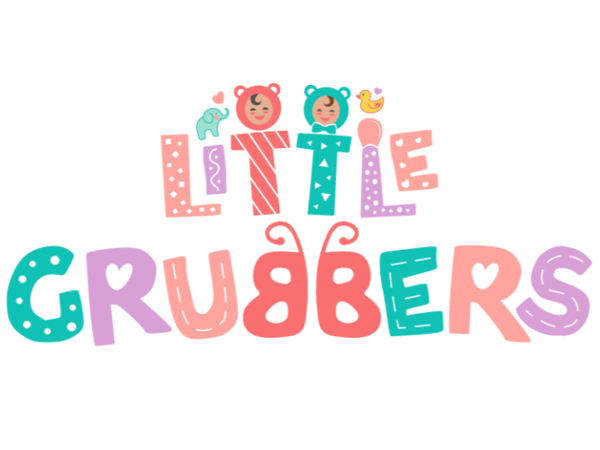When Should You Be Concerned About Feeding?
Mealtimes with babies are supposed to be joyful, messy, and full of discovery—but what if feeding feels like a daily struggle? If your baby gags, refuses food, struggles to chew, or won’t transition to solids, you might be wondering: Is this normal, or should I be concerned?
While some feeding challenges are part of typical development, others may signal a need for feeding therapy for babies. Identifying these signs early can help ensure your little one gets the support they need for healthy eating habits.
Let’s explore some common red flags, when to seek professional help, and what you can do to help at home!

Signs Your Baby Might Need Feeding Therapy
1. Difficulty Transitioning to Solids
Most babies start purees around 6 months and gradually move to soft finger foods between 8-10 months. If your baby:
🚩 Chokes or gags excessively on solids
🚩 Refuses anything but purees beyond 10-12 months
🚩 Pushes food out of their mouth constantly
These could be signs of oral motor delays, where the muscles needed for eating aren’t developing as expected.
💡 What to do: Offer a variety of textures, encourage self-feeding with tools like the Little Grubbers 3-in-1 Baby Spoon™, and observe how they manage different foods.
2. Extreme Picky Eating
It’s normal for toddlers to have preferences, but some feeding issues go beyond just being "picky." Signs to watch for:
🚩 Only eating 5-10 specific foods
🚩 Refusing entire food groups (no fruits, no proteins, etc.)
🚩 Meltdowns when introduced to new foods
This could indicate sensory processing difficulties, where certain textures, tastes, or smells feel overwhelming to your baby.
💡 What to do: Encourage gradual exposure to new foods without pressure. Let your baby touch, smell, and explore food before expecting them to eat it.
3. Frequent Coughing, Gagging, or Choking
Occasional gagging is normal, but if your baby struggles to swallow safely, they may have a swallowing disorder (dysphagia). Watch for:
🚩 Coughing or choking during meals
🚩 Frequent spit-ups or wet-sounding breathing after eating
🚩 Taking a long time to finish a small amount of food
These could indicate a problem with coordination in swallowing that needs professional evaluation.
💡 What to do: Speak with a pediatrician or feeding therapist if choking is persistent.
4. Refusing to Eat or Showing No Interest in Food
Babies are naturally curious about food. If your baby consistently:
🚩 Turns away from food every time
🚩 Clamps their mouth shut at meals
🚩 Seems uninterested in food at all
This could be linked to underlying medical, sensory, or oral-motor challenges.
💡 What to do: Rule out issues like acid reflux, food allergies, or tongue ties with your pediatrician.
5. Difficulty Chewing or Using a Spoon
By 12 months, babies should be experimenting with chewing soft foods and using a spoon (even if it's messy!). Signs of a problem include:
🚩 Holding food in their mouth without swallowing
🚩 Struggling to move food from side to side with their tongue
🚩 Drooling excessively or seeming weak when chewing
These may indicate oral motor skill delays, making it hard to control food in the mouth.
💡 What to do: Offer easy-to-grip utensils like the Little Grubbers 3-in-1 Baby Spoon™ to strengthen self-feeding skills.
When to Seek Professional Help
If you notice several of these signs consistently, it’s worth speaking with:
👩⚕️ Your Pediatrician – To rule out medical causes like reflux or allergies.
👅 A Feeding Therapist (SLP or OT) – To assess oral motor skills, sensory challenges, or swallowing difficulties.
🥦 A Pediatric Dietitian – For help with balanced nutrition in limited diets.
How to Support Your Baby’s Feeding Skills at Home
✅ Encourage Self-Feeding
Let your baby explore and play with food. Using a baby-safe utensil like the Little Grubbers 3-in-1 Baby Spoon™ helps strengthen hand-to-mouth coordination.
✅ Offer a Variety of Textures
Introduce new foods gradually. Try:
✔ Soft avocado slices
✔ Mashed banana
✔ Cooked pasta
✔ Scrambled eggs
✅ Make Mealtimes Positive
Avoid pressuring or bribing. Instead, eat together and make meals relaxed and enjoyable.
Final Thoughts: Trust Your Instincts
If something feels off about your baby’s feeding habits, trust your gut. Early intervention can make a huge difference in building healthy eating habits.
💡 Need a tool to encourage independent eating?
The Little Grubbers 3-in-1 Baby Spoon™ is designed to help babies practice self-feeding with confidence!
🌟 Check it out here.🌟
Has your baby struggled with feeding? Share your experience in the comments! 😊

